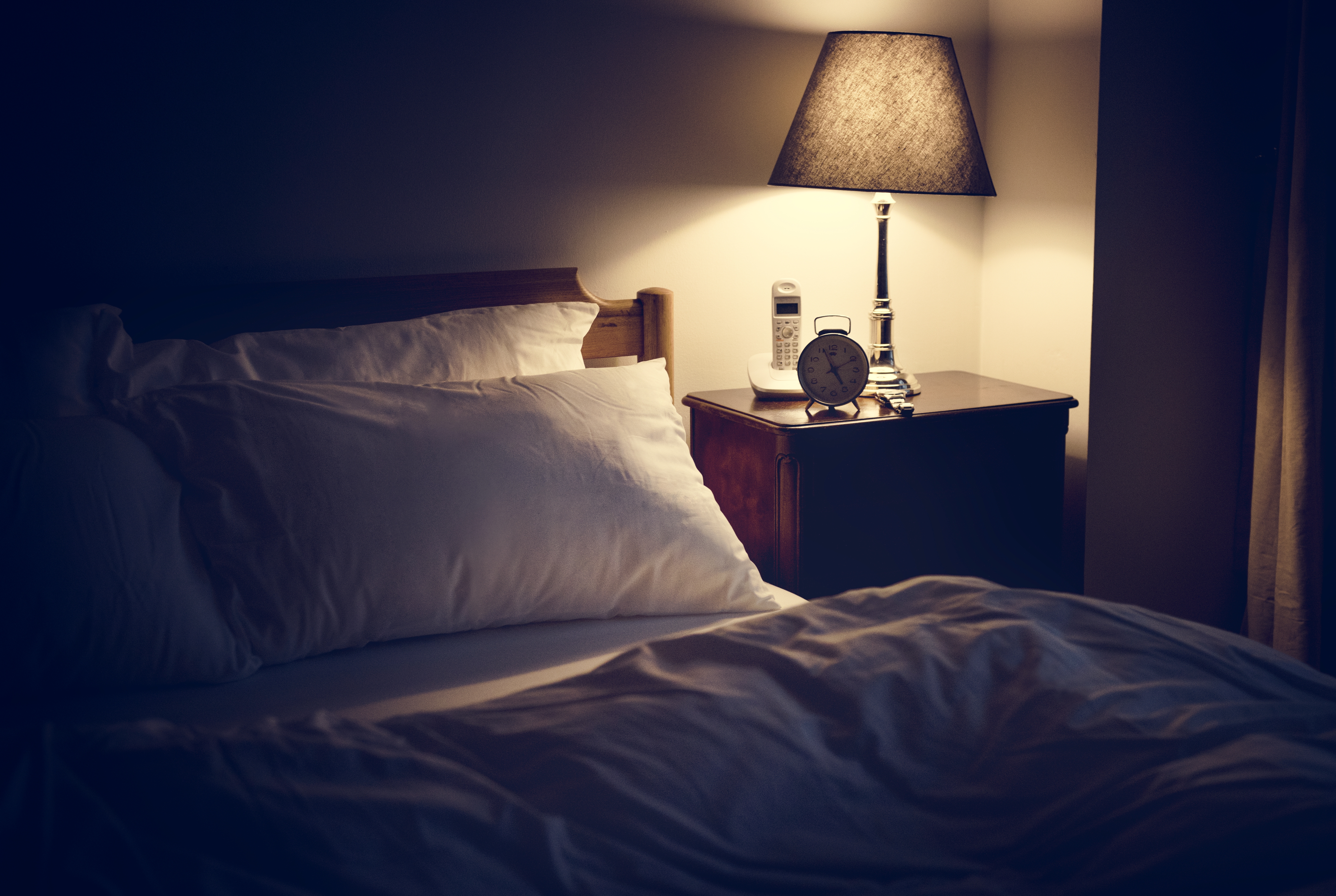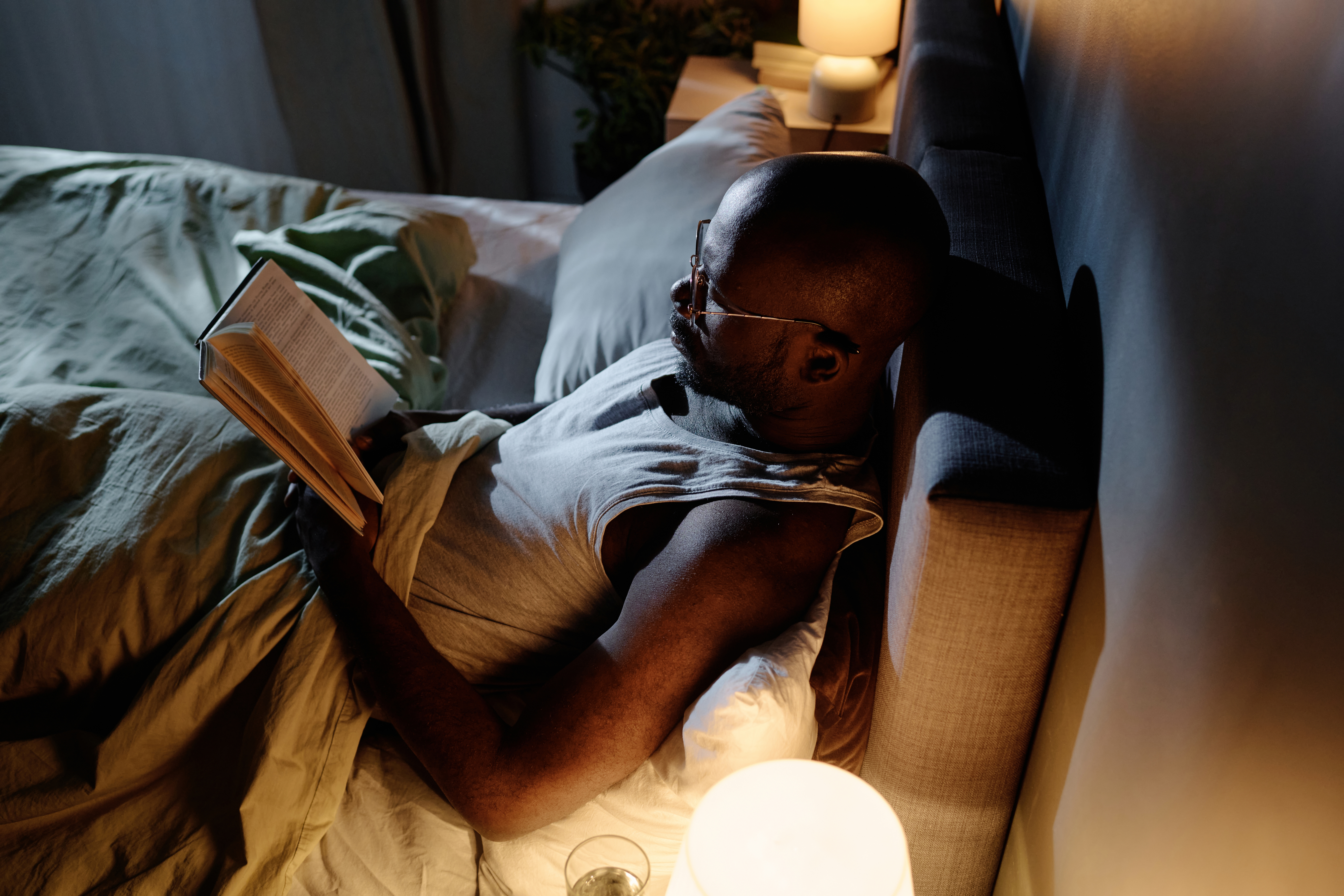8 Health Habits That Will Make You a Better Sleeper
In today's fast-paced world, achieving a peaceful night's sleep can seem as elusive as capturing lightning in a bottle. The concept of 'Whispering the Night to a Deep Rest' suggests a gentle approach to cultivating sleep habits that foster tranquility and rejuvenation. This article explores eight meticulously curated health habits designed to guide you into a state of effortless sleep serenity. Each habit is a stepping stone towards understanding and mastering the art of restful slumber, ensuring that your nights are filled with calm and your days with vitality. Let us embark on this journey to transform how we perceive and achieve sleep.
The Science of Sleep Cycles

Understanding sleep cycles is fundamental to improving sleep quality. Each night, the human body undergoes several cycles of non-REM and REM sleep, each with distinct characteristics and benefits. Non-REM sleep is crucial for physical restoration, while REM sleep enhances cognitive functions and emotional regulation. Disruptions in these cycles can lead to sleep disorders and a decline in overall health. By aligning our habits with these natural rhythms, we can enhance the restorative powers of sleep. This section lays the groundwork for the subsequent habits, emphasizing the importance of respecting and nurturing our biological sleep architecture.
Crafting a Sleep-Inducing Environment

The environment in which we sleep plays a pivotal role in the quality of rest we achieve. A serene sleep space should be cool, dark, and quiet, free from electronic distractions and clutter. Investing in comfortable bedding and blackout curtains can significantly enhance sleep quality. Aromatherapy, using scents like lavender and chamomile, can also promote relaxation. By transforming our bedrooms into sanctuaries of peace, we create an inviting atmosphere that naturally lulls us into slumber. This habit underscores the importance of environmental factors in achieving sleep serenity, setting the stage for deeper relaxation.
The Role of a Consistent Sleep Schedule

Consistency is key when it comes to sleep. Establishing a regular sleep schedule, where one goes to bed and wakes up at the same time every day, can regulate the body's internal clock. This practice helps optimize the timing of sleep cycles, ensuring a more restorative rest. Even on weekends, maintaining this schedule can prevent the grogginess associated with "social jet lag." By committing to consistency, we reinforce our body's natural rhythms, making it easier to fall asleep and wake up refreshed. This habit is a cornerstone of sleep hygiene, bridging the gap between intention and practice.
Nutrition and Sleep: A Delicate Balance

What we eat and drink can significantly impact our sleep quality. Consuming a balanced diet rich in sleep-promoting nutrients, such as magnesium and tryptophan, can enhance sleep. Avoiding caffeine and heavy meals close to bedtime is equally crucial, as they can disrupt sleep cycles. Hydration also plays a role; while it's essential to stay hydrated, excessive fluid intake before bed can lead to nighttime awakenings. By being mindful of our nutritional choices, we can support our body's natural ability to transition into sleep, fostering a deeper, more restful slumber.
The Power of Pre-Sleep Rituals

Establishing a pre-sleep routine can signal to the body that it's time to wind down. Activities such as reading, gentle yoga, or meditation can ease the transition from wakefulness to sleep. These rituals help reduce stress and anxiety, common culprits of sleep disturbances. By incorporating relaxing activities into our evening routine, we can create a buffer between the day's demands and the night's rest. This habit highlights the importance of intentional relaxation, allowing us to embrace the night with a sense of calm and readiness for sleep.
Exercise: A Natural Sleep Aid

Regular physical activity is a potent ally in the quest for better sleep. Exercise not only helps reduce stress and anxiety but also improves sleep quality by promoting deeper sleep cycles. However, the timing of exercise matters; engaging in vigorous activity too close to bedtime can be stimulating. Ideally, aim for moderate exercise earlier in the day to harness its sleep-enhancing benefits. This habit emphasizes the interplay between physical activity and sleep, illustrating how movement can be a natural remedy for insomnia and a catalyst for sleep serenity.
Managing Stress and Its Impact on Sleep

Stress is one of the most significant barriers to achieving restful sleep. Chronic stress can lead to heightened alertness and difficulty falling asleep. Techniques such as mindfulness, deep breathing, and progressive muscle relaxation can mitigate the impact of stress on sleep. By addressing stress head-on, we can reduce its hold over our nights, paving the way for uninterrupted rest. This habit underscores the necessity of stress management as a critical component of sleep health, highlighting the mind-body connection in achieving sleep serenity.
The Influence of Technology on Sleep

In our digital age, technology often intrudes on our sleep environments, disrupting our natural sleep patterns. The blue light emitted by screens can interfere with the production of melatonin, the hormone responsible for regulating sleep. Implementing a "digital sunset," where screens are turned off at least an hour before bed, can help restore the body's natural sleep-wake cycle. By consciously disconnecting from technology, we allow our minds to unwind, fostering a more profound and uninterrupted sleep. This habit addresses the modern challenge of technology, advocating for mindful usage to protect our sleep.
Embracing Sleep Serenity

Achieving effortless sleep serenity requires a holistic approach, integrating these eight habits into our daily lives. By understanding and respecting our body's natural rhythms, crafting a conducive sleep environment, and adopting mindful practices, we can transform our nights into periods of deep rest and rejuvenation. Each habit builds upon the others, creating a comprehensive strategy for achieving sleep health. As we whisper the night to a deep rest, we not only enhance our sleep but also enrich our overall well-being, awakening each day refreshed and ready to embrace life's challenges.
